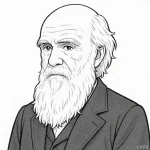“Few friendships would survive if each one knew what his friend says of him behind his back.”

- June 19, 1623 – August 19, 1662
- French
- Mathematician, Physicist, Inventor, Philosopher, Theologian
table of contents
Quote
“Few friendships would survive if each one knew what his friend says of him behind his back.”
Explanation
Pascal points to the fragile nature of human relationships, exposing the dissonance between public affection and private opinion. What sustains friendship, he suggests, is often a veil of ignorance or tact, where people avoid saying everything they truly think. If all private criticisms were revealed, even the strongest bonds might dissolve. This is not necessarily a cynical attack on friendship, but rather an observation of human weakness, pride, and the desire to be well-regarded.
In the context of Pascal’s time, the 17th century, society was highly hierarchical and governed by codes of honor and reputation. Gossip and behind-the-scenes maneuvering were common, especially in courts and salons. Pascal, with his deep interest in human nature and morality, saw how fragile social ties could be when exposed to unfiltered truth. His broader writings in Pensées often explore the illusion and self-deception that underpin much of human interaction.
Today, this quote still rings true in the age of social media and digital surveillance, where unintended revelations—leaked messages, screenshots, or overheard comments—can quickly destroy trust. It serves as a reminder to guard both what we say and how easily we take offense, and to build friendships on tolerance and humility. In a world where complete honesty might be too harsh, kindness and discretion often preserve harmony better than truth alone.
Would you like to share your impressions or related stories about this quote in the comments section?



